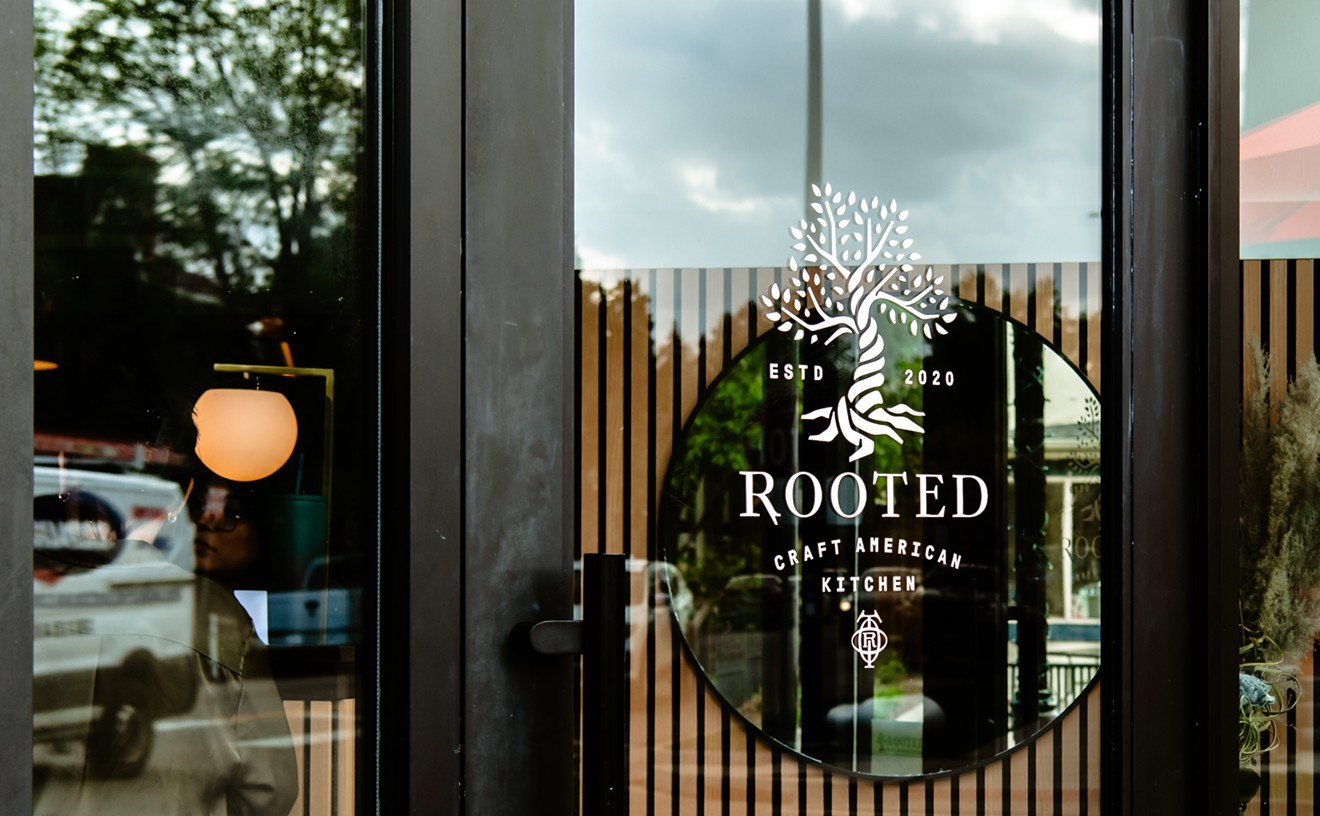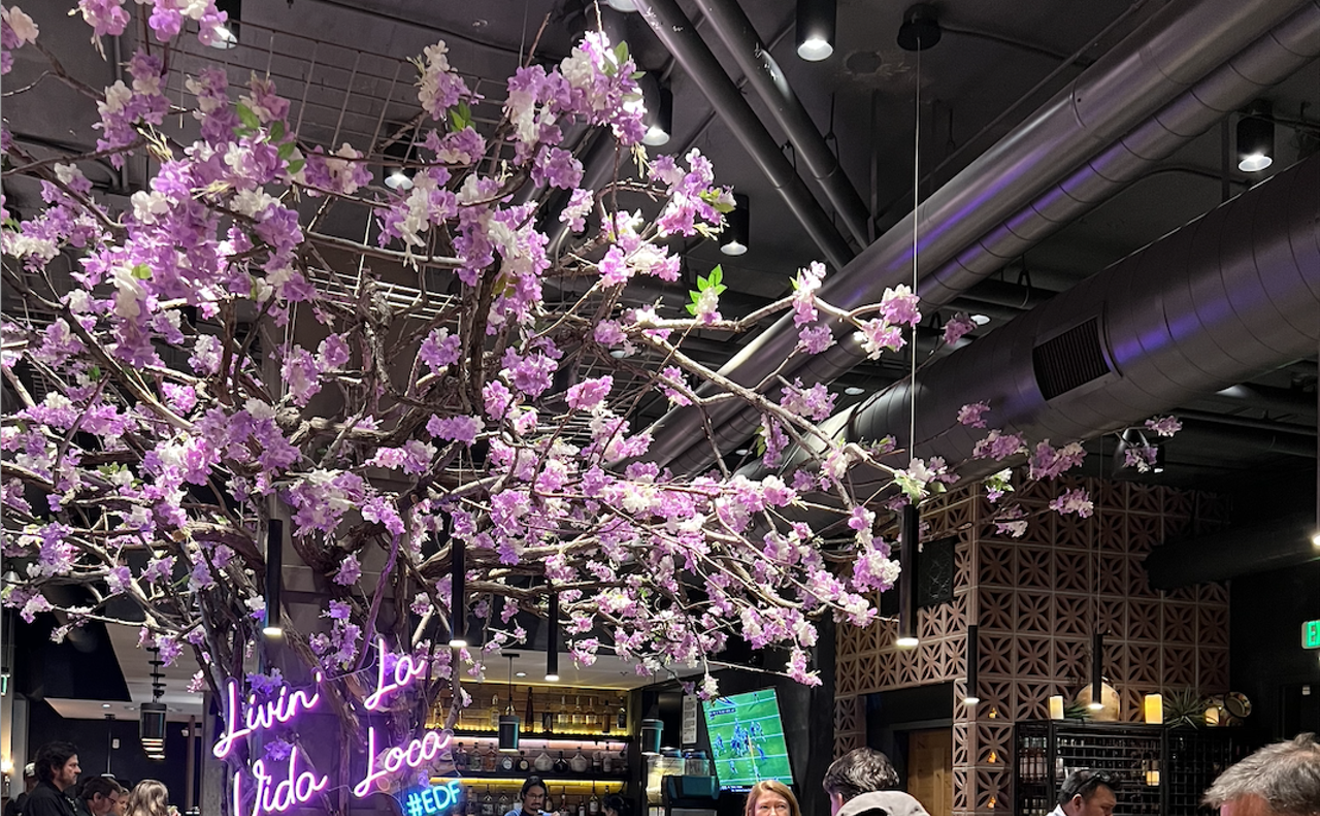Kathy Lee has been cooking up jams and other preserves for her company, Modern Gingham, since 2012, and the fruits of her labor are beginning to ripen. Her raspberry-violet jam, made with organic berries and crème de violet from Colorado's Golden Moon Distilling, won a national Good Food award earlier this year, which has gained Modern Gingham recognition outside of Colorado as well as the opportunity for Lee to showcase her products in Chicago on May 1 at the Good Food Mercantile. Lee says the event will help grow her brand in the Midwest.
Lee is much more than a maker of preserves; she's also a forager and proponent of local produce, much of which would go wasted without her efforts. Many of the berries, apples and other fruits that she uses come from trees and bushes in Denver and beyond, many growing on public land or going unused on private property. She has become an expert tree spotter and asks permission to pick and harvest on private property, generally returning jars of preserves in return for access. "Two years ago, all my plums were hand-picked, not from orchards," Lee notes. She also finds wild cherries, crabapples, rhubarb and currants growing in alleys, on vacant lots and on farmland throughout the state, and has even collected citrus fruits from wild-growing trees in Arizona.
Because the batch es at Modern Gingham are so small — a busy day may yield just 300 jars — Lee is also able to work with farmers who have small amounts of produce. Rather than buying in bulk from big producers, Lee explains, "I'm more interested in being contacted by a small farmer who says, 'I have eight pounds of black currants — can you use them?' Because I can!"
Lee also works with other foragers, like Denver's Hunt & Gather, to help locate rare regional fruits like paw paws, huckleberries and wild blueberries. "That's another forager-finding food that would otherwise go to waste," she explains.
Many of Denver's urban farmers are losing acreage due to the city's development boom, but there are still plenty of hidden trees and shrubs waiting to be picked. Lee loves to hear from people throughout the city who have crops of fruits and berries they won't be able to use. She also plans to organize foraging walks this summer with small groups of two or three budding foragers at a time. You can contact her through the Modern Gingham website if you'd like to participate.
Lee sells her preserves on her website as well as at a growing number of specialty food shops and liquor stores. With her labor-intensive approach (each batch is cooked on a stove top in small copper pots) and dedication to foraging, her production is relatively low. "Some people say it only matters how many units you sell — but to me it matters how good the food is," she says. "I'm not interested in being in large grocery stores."
A recent batch of apricot-orange marmalade yielded only fifteen jarss and she sold them all at Cheese + Provisions in the Sunnyside neighborhood. "The story of where I find the fruit, that I know the farmer or I know the grower, is more important to me," Lee explains.
[
{
"name": "Air - MediumRectangle - Inline Content - Mobile Display Size",
"component": "12017618",
"insertPoint": "2",
"requiredCountToDisplay": "2"
},{
"name": "Editor Picks",
"component": "17242653",
"insertPoint": "4",
"requiredCountToDisplay": "1"
},{
"name": "Inline Links",
"component": "18838239",
"insertPoint": "8th",
"startingPoint": 8,
"requiredCountToDisplay": "7",
"maxInsertions": 25
},{
"name": "Air - MediumRectangle - Combo - Inline Content",
"component": "17261320",
"insertPoint": "8th",
"startingPoint": 8,
"requiredCountToDisplay": "7",
"maxInsertions": 25
},{
"name": "Inline Links",
"component": "18838239",
"insertPoint": "8th",
"startingPoint": 12,
"requiredCountToDisplay": "11",
"maxInsertions": 25
},{
"name": "Air - Leaderboard Tower - Combo - Inline Content",
"component": "17261321",
"insertPoint": "8th",
"startingPoint": 12,
"requiredCountToDisplay": "11",
"maxInsertions": 25
}
]











